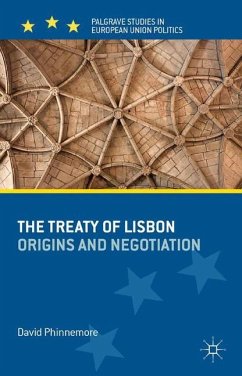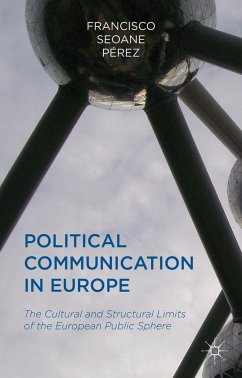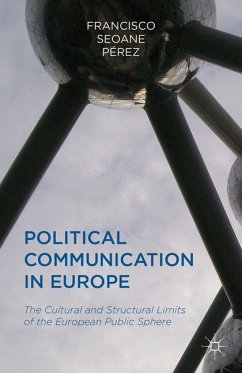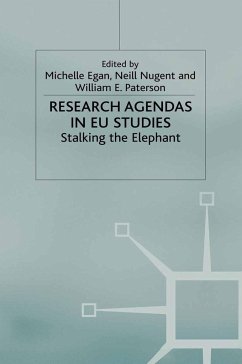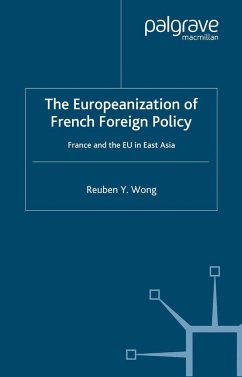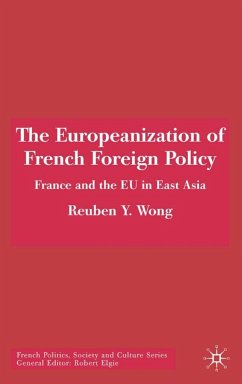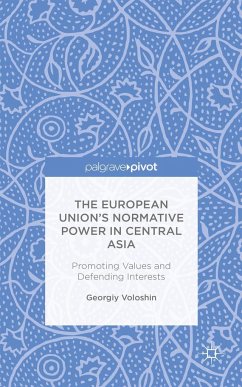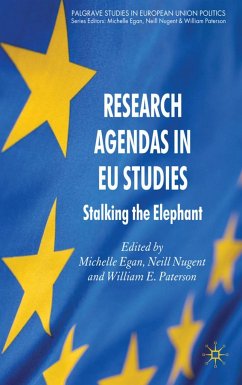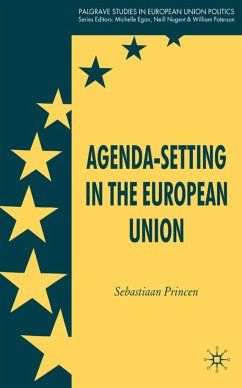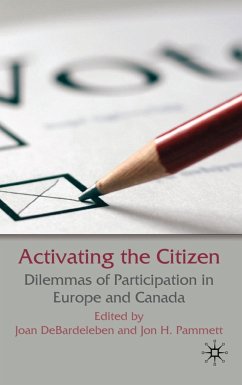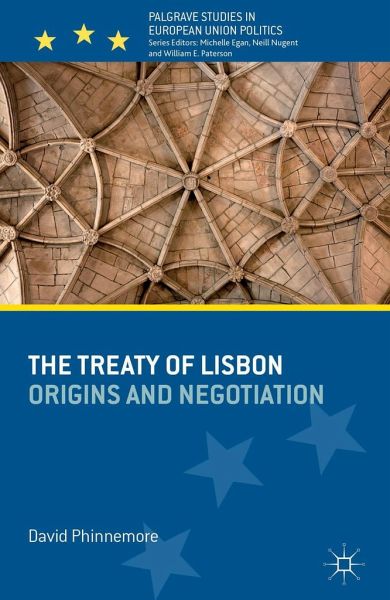
The Treaty of Lisbon
Origins and Negotiation
Versandkostenfrei!
Versandfertig in 6-10 Tagen
38,99 €
inkl. MwSt.
Weitere Ausgaben:

PAYBACK Punkte
19 °P sammeln!
Detailed and comprehensive analysis of how the Treaty of Lisbon emerged in 2007 this book explores the role played by the German Council Presidency and the EU's institutional actors in securing agreement among the leaders of member states on an intergovernmental conference as well as a new treaty text to replace the rejected Constitutional Treaty.



